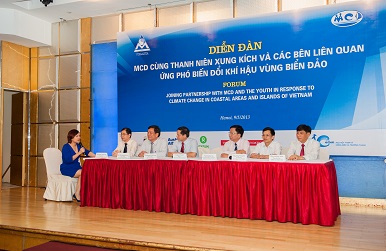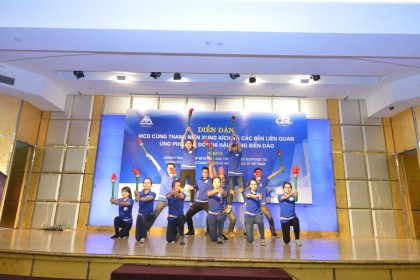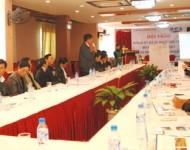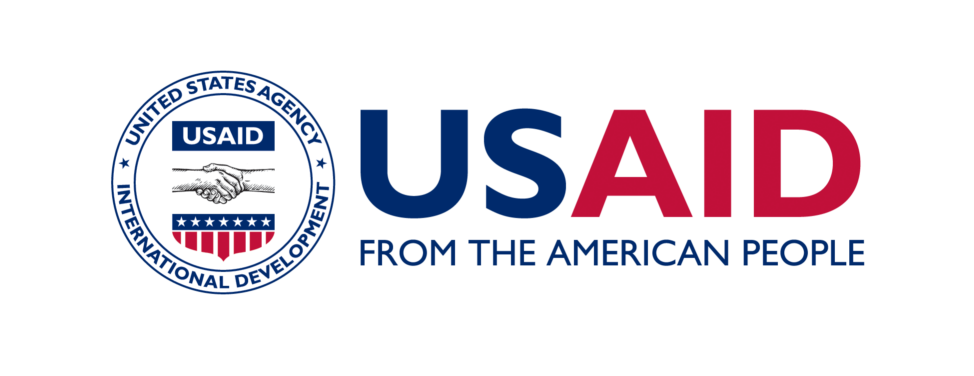News and events
MCD and Youth respond to climate change in archipelago
On the afternoon of 09.05.2013, in Hanoi, Centre for Marinelife Conservation and Community Development (MCD) held a workshop “Joining partnership with MCD and the Youth in response to climate change in coastal areas and islands of Vietnam” (MCD Forum Anniversary – A Decade).
The forum called for authorities, unions, organizations, and individuals to empower youth to participate in environmental protection and climate change adaptation in coastal islands, through the campaign “Blue Lighthouse – Vanguard youth responing to climate change in archipelago”. Delegates shared and discussed many of the problems related to climate change adaptation in the Blue Lighthouse Program (HDX) forum to mobilize the participation and intellectual capacities of youth and students in Vietnam. These youth can enhance the sustainability, spread, and strength of the response to climate change in Vietnam in general, and the coastal regions in particular.

According to Nguyen Thu Hue, MCD’s Director, specific objectives of the program include promoting Blue Lighthouse’s Youth Core, responding to climate change initiatives in coastal plains, and supporting youth groups, core student organizations, and unions to respond to climate change through capacity building and concrete action. Blue Lighthouse will tighten and strengthen the relationship between the forces directly involved in responding to climate change: the state, social and political organizations, youth, and Coastal Communities. At the same time, awareness will be raised about climate change and adaptation to its effects for communities, especially the coastal communes.
The initial steps are scheduled to take place within the first year: Ignite, Shine, Spread, and bringing together 28 Lighthouse Blue groups (representing the coastal provinces in Vietnam). In the Ignite stage, participants were selected and provided with practical skills to respond to climate change and work with organizations for environmental and sustainable development of the community. These Blue Lighthouse groups will “shine” to the young students and 500 other elite residents in coastal communities, implementing initiatives or carrying out specific models to respond to climate change.
From there, the program will spread to 3260 students and youths (symbolizing the coastline of Vietnam’s mainland area), encouraging them to participate in the activities of the program of action to cope with climate change. With the support of the media, information on climate change can reach 1 million students and other young people in both cities and coastal provinces.

Climate change has serious impacts on production, life and the environment across the world. As a country with a long coastal line and low deltas, Vietnam is expected to be one of the countries most severely affected by climate change.
According to the most recent estimates, by the end of 21st century, the average annual temperature in Vietnam is predicted to increase by 2-3 degrees. Annual rainfall in the rainy season is estimated to rise while it is expected to decrease in the dry season. If sea level rises 1 meter, approximately 40 % of the Mekong Delta, 11 % of the Red River Delta and 3 % of the area of the other coastal provinces would be flooded. About 10-12 % of Vietnam’s population is predicted to be directly affected and Vietnam will lose about 10 % of GDP. The impacts of climate change for a developing country like Vietnam are substantial and serious, increasing the potential risks related to poverty reduction targets for the implementation of the MDGs and sustainable development of the nation.
Recognizing the serious impacts of climate change on the sustainable development of Vietnam, the government creates strategic targeted programs and synchronized solutions to cope with climate change. Regarding the coast and islands, a series of major programs were proposed such as upgrading river and sea dyke systems in accordance with the conditions of climate change and sea level rise, encouraging socio-economic development in the island, and piloting and replicating effective community responses to climate change.
Among the forces involved in the response to climate change, civil society organizations and youth force play essential roles. Youth is a strong force with great potential to contribute remarkably to the nation building process. This force should be mobilized, connected, empowered, and promoted to be able to work effectively.
Centre for Marinelife Conservation and Community Development (MCD) is a non-government organization established in 2003 with the aim of harmonizing the needs of coastal communities to preserve the marine environment in the context of climate change.
MCD has been constantly strengthening and supporting local people’s participation in environmental protection, use and sustainable management of marine resources to improve their lives, and environmental resource management policy in the coastal areas at levels. MCD targets poor communities living in and around nature reserves, National Parks, Marine Protected Areas and Biosphere Reserves with marine elements.





























